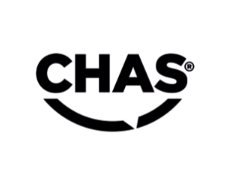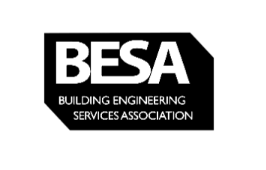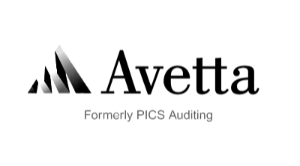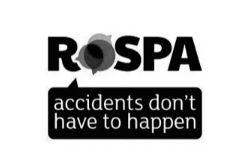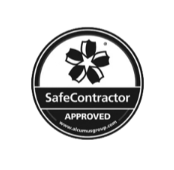Dealing with disposable nappies is something many people do every day in the UK, and while it might seem like a straightforward task (despite the mess!), improper disposal can have significant environmental and legal consequences in the UK. Understanding the regulations surrounding nappy waste is crucial for both individuals and businesses, especially those managing public spaces or facilities. In our latest post, we’ll take a look at the key nappy waste disposal regulations in the UK and what you can do to ensure you stick to them.
Understanding Nappy Waste
Nappy waste is a significant concern for many businesses and public facilities that provide baby changing amenities. This type of waste, which includes soiled nappies, is classified as sanitary waste and requires careful handling to prevent health risks and environmental damage. Proper disposal of nappy waste is not just a matter of hygiene but also a legal obligation under UK regulations. Understanding what constitutes nappy waste and the best practices for its disposal is crucial for maintaining a clean and safe environment.
Definition of Nappy Waste
Nappy waste refers to the disposal of soiled nappies, which are considered a type of sanitary waste. This waste is commonly generated by businesses that offer baby changing facilities, such as nurseries, childcare centres, and healthcare facilities. Proper disposal of nappy waste is essential to prevent health risks and environmental damage. Nappy waste must be managed separately from general waste to ensure it is handled in a way that minimises contamination and adheres to legal requirements.
What are the nappy waste disposal regulations?
In the UK, nappies are classified as absorbent hygiene products (AHPs) and are treated as non-recyclable waste. For businesses, public spaces, and childcare facilities, the disposal of nappy waste falls under strict legal guidelines, particularly concerning health and safety, waste management and environmental protection. While nappies may be considered offensive waste due to their nature, they are classified as non hazardous, allowing for their safe disposal in designated bins or through specific waste collection services.
Public places, such as shopping centres, airports, and public restrooms, are required to provide appropriate disposal bins for nappies in accordance with hygiene regulations. Businesses must also ensure that nappy waste is disposed of by licensed waste carriers, following specific guidelines for the transportation and treatment of this type of waste.
Nappy waste comes under two key pieces of legislation:
The Environmental Protection Act 1990
According to the Environmental Protection Act 1990, businesses have specific responsibilities when it comes to managing their waste, including nappy waste. Offensive waste categorised as non-clinical, non-hazardous waste such as nappies, may have unpleasant characteristics but does not pose health risks. Under this act, nappy waste is categorised as controlled waste, meaning businesses must take reasonable steps to ensure it is collected, transported, and disposed of by authorised waste management services. Non-compliance with the act can result in fines or penalties.
This act also places a duty of care on businesses and waste producers, requiring them to manage waste properly, segregate hazardous materials, and reduce risks to human health and the environment.
The Water Industry Act 1991
The Water Industry Act 1991 regulates what can and cannot be disposed of through the sewerage system. Nappies are explicitly prohibited from being flushed down the toilet, as they can cause blockages in sewers and lead to pollution incidents. Improper disposal of nappies via toilets can result in significant damage to water systems and can incur penalties under this act.
Nappy Waste Collection and Disposal
Effective collection and disposal of nappy waste are critical components of waste management for any facility that caters to young children. The right approach not only ensures compliance with regulations but also helps maintain a hygienic environment for all users.
Nappy Waste Bins and Bags
Nappy waste bins and bags are specifically designed to store soiled nappies securely until they can be collected and disposed of properly. The choice of nappy waste bin depends on the volume of waste produced regularly. Businesses can select from a variety of options, including small nappy waste bins for low-traffic areas and larger bins for busier facilities. Additionally, nappy waste bags and sanitary waste bags are essential for containing the waste and preventing leaks and odours. Non-infectious clinical waste bags can also be used to store nappy waste, ensuring it is kept separate from other types of waste.
The impact of nappy disposal on the environment
Improper disposal of nappies poses serious environmental risks. Providing sanitary bins is crucial for the safe disposal of feminine hygiene products and ensuring proper waste management. Nappies contain plastic, chemicals and organic waste, all of which take hundreds of years to decompose in landfills. When nappies are not disposed of correctly, they can contribute to soil and water contamination, leading to long term environmental damage. Additionally, nappies flushed down toilets can cause major blockages in sewer systems, which can result in raw sewage overflows and harm to aquatic life.
What are the penalties for improper nappies disposal?
The penalties for improper disposal of nappy waste can vary depending on the scale of non-compliance. Businesses may have to pay fines if they cannot follow proper waste management protocols under the Environmental Protection Act 1990. These fines can range from a few hundred pounds to tens of thousands, depending on the severity of the offence. Under the Water Industry Act 1991, businesses and individuals who flush nappies down toilets can also face penalties for causing blockages and pollution.
In some cases, more serious environmental offences could lead to prosecution and further legal action. Ensuring compliance with the regulations is essential to avoid these costly consequences.
Managing Nappy Waste in the Workplace
Managing nappy waste in the workplace requires a comprehensive approach that includes proper storage, collection, and disposal. Businesses must ensure that nappy waste is stored in designated bins and bags, and that these bins are regularly emptied and cleaned to prevent odours and contamination. It is also essential to partner with a licensed waste carrier to ensure that nappy waste is disposed of in an environmentally responsible manner.
Businesses have a duty of care to ensure that nappy waste is handled and disposed of responsibly. This means using nappy waste bins and bags designed to prevent leakage and contamination, and ensuring regular collection and disposal to prevent odours and health risks. Nappy waste can be disposed of through landfill or incineration, but environmentally friendly options such as recycling and composting are also available. By adhering to these practices, businesses can effectively manage nappy waste and contribute to a cleaner, safer environment.
Make sure you dispose of nappies correctly
Here are some tips to ensure nappies are disposed of safely and in compliance with nappy waste disposal regulations in the UK:
· Always use designated nappy bins in public spaces or workplaces. Businesses should provide appropriate receptacles in baby changing areas and washrooms as necessary.
· Businesses and organisations should ensure that nappy waste is collected by authorised waste carriers.
· Never flush nappies down the toilet; use appropriate disposal methods.
· Consider using eco-friendly nappy disposal services if available.
· Regularly review waste management policies to ensure compliance with the latest regulations.
Keeping washrooms clean and safe with phs
At phs, we understand the importance of providing safe spaces for your littlest visitors. We provide a range of washroom and baby changing services that can ensure that business owners and building managers can provide baby changing areas that are fully equipped, safe and hygienic, while helping you protect the environment.
To help create a better future for us all, up to 95% of hygiene waste disposed of in our nappy bins will be diverted from landfill and sent to an Energy from Waste facility to be turned into renewable energy.
We sell nappy disposal units, nappy bag dispensers and much more so that your visitors can take care of their little ones, while helping you manage nappy waste more effectively. Get in touch with our team for more information about our baby changing services.
By following the appropriate nappy waste disposal regulations in the UK, businesses and individuals can help protect the environment and manage their waste successfully.






























